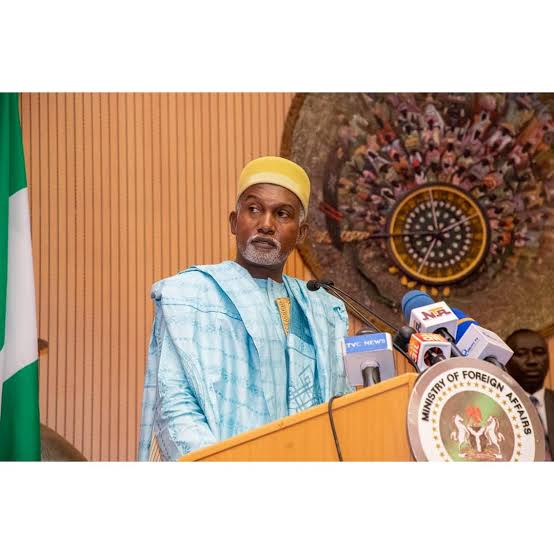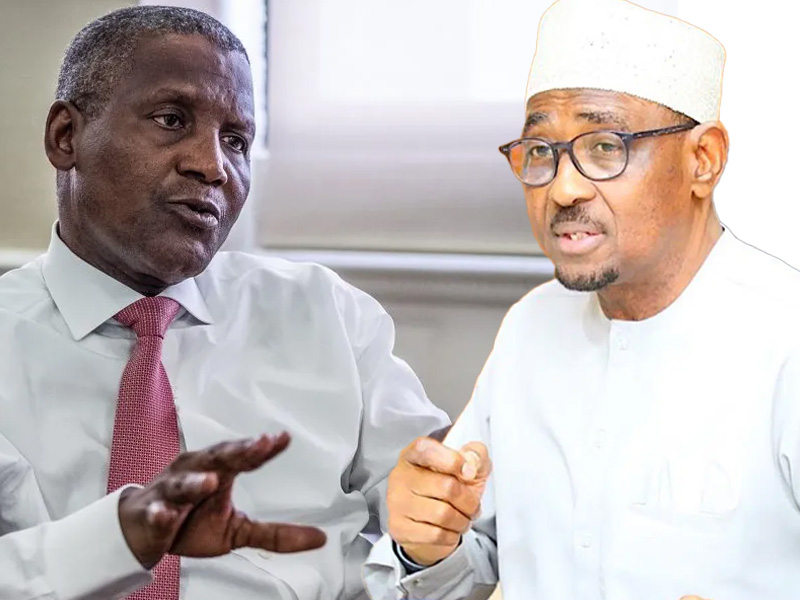Elitism And A Son’s Passion: Why Can’t Soludo Flex?
ERNIE ONWUMERE

In a heartwarming display of familial support, Anambra State Governor, Professor Chukwuma Charles Soludo, recently joined his son Ozonna in a viral TikTok dance challenge to promote the latter’s new single, #BigFlex. The video, capturing the governor swinging freely alongside his son with infectious energy, has sparked widespread admiration across Anambra and Nigerian cyberspace.
Yet, as the video trends, it has also drawn criticism from some Nigerians who argue that the son of a distinguished professor, technocrat, and elite governor like Soludo should pursue a “serious” career path rather than music. This perspective, rooted in rigid expectations of what constitutes a respectable profession, is not only outdated but also dismissive of the rich legacy of Nigerian trailblazers who have thrived by following their passions, often diverging from their parents’ elite profiles.
Ozonna Soludo, a New York-based artist who graduated from the Institute of Contemporary Music in London, has carved a niche in the music industry with his unique blend of Afropop, dance, and global rhythms. His songs, such as Believe It, To See It, We Glow, and Smile, reflect a creative spirit that resonates with audiences in Nigeria and the Diaspora.
But despite his growing success, some critics question why the son of a former Central Bank of Nigeria governor and esteemed economist would choose music over a conventional career in academia, finance, or governance. This criticism echoes a broader societal bias that equates “seriousness” with traditional professions, undervaluing the arts as a legitimate and impactful career path.
History, however, offers compelling counterarguments through the stories of iconic Nigerians who defied similar expectations to pursue their passions, leaving unforgettable impact on society.
Consider the late Chief Chukwuemeka Odumegwu Ojukwu, Ikemba Nnewi, born into the wealth and influence of his father, Sir Louis Odumegwu Ojukwu, a prominent Igbo businessman. Educated at Oxford University, where he earned a master’s degree in Modern History, Ojukwu could have followed a predictable path into business or academia. Instead, he chose to join the Nigerian Army, a decision that shocked many given his elite background. His military career and leadership as the leader of Biafra during the Nigerian Civil War encapsulated his legacy as an iconic figure, proving that passion-driven choices can yield profound impact.
Similarly, Fela Anikulapo-Kuti, the Afrobeat pioneer, defied the Pastoral legacy of his Reverend Father and foremost educationist. His brothers, Prof. Olikoye Ransome-Kuti and Dr. Beko Ransome-Kuti, were renowned doctors, and his mother, Funmilayo, was a formidable activist. Yet, Fela, who initially studied music in London, returned to Nigeria to create a genre that blended jazz, funk, and African rhythms, using his music as a weapon against oppression. His unconventional path revolutionised global music and amplified Nigeria’s cultural influence, proving that artistic pursuits can carry as much weight as elite professions.
More contemporary examples further illustrate this point. Davido, born David Adeleke, is the son of Dr. Adedeji Adeleke, a billionaire entrepreneur and founder of Adeleke University. Despite his father’s towering achievements in business and education, Davido pursued music, rising to become one of Africa’s biggest stars. His global success, with hits like Fall and If, validates how passion, when nurtured, can elevate a family’s legacy rather than diminish it.
Likewise, Falz, born Folarin Falana, is the son of Femi Falana, a Senior Advocate of Nigeria and human rights luminary. Falz could have followed his father into law but chose music and acting, blending sharp social commentary with entertainment in songs like This Is Nigeria. His career has not only earned him acclaim but also amplified his father’s advocacy through a different medium. Also is Charly Boy Oputa, the son of iconic jurist Justice Chukwudifu Oputa and DJ Cuppy, daughter of billionaire Femi Otedola. These examples, Ojukwu, Fela, Davido, Charly Boy, Dj Cuppy and Falz, affirm a recurring theme: elite Nigerian parents who allow their children to pursue their passions often water innovation and excellence.
So, Governor Soludo’s public support for Ozonna’s #BigFlex is a powerful endorsement of this principle. By joining his son in the viral dance challenge, Soludo promotes Ozonna’s music while also sending a broader message about the importance of parental encouragement. And the public gesture of admiration reflects a father who, despite his academic and technocratic pedigree, values his son’s individuality and creative expression.
However, cynics who insist that Ozonna should have chosen a “serious” career path, or should be acting more serious and elitist, overlook the life-changing potential of the arts. Music, as Fela, Davido and others have shown, is not only entertainment but a cultural force that shapes narratives, unites communities, and drives economic value. Nigeria’s creative industry, including its music sector, contributes significantly to GDP and global soft power. Ozonna’s pursuit of music, supported by his father’s platform, aligns with this reality, positioning him to contribute to Nigeria’s cultural and economic landscape in ways that a conventional career might not.
Even more, Governor Soludo’s support for Ozonna signals a broader shift among Nigeria’s elite toward embracing diverse career paths. Historically, elite families often steered their children toward law, medicine, accounting, engineering or politics to maintain status. Yet, the success of figures like Ojukwu, Fela, Davido, Charly Boy and Falz shows that allowing children to follow their passions can yield phenomenal results, not just for the individual but for society at large.
Prof. Soludo, a man who has successfully navigated the heights of academia, finance, and governance, understands that life is dynamic and times change. His willingness to dance alongside Ozonna is a symbolic rejection of rigid expectations, affirming that elite parents should be flexible and should champion their children’s unique paths or identity, no matter how unconventional.
Thus, the viral #BigFlex dance video featuring Governor Soludo and his son Ozonna goes beyond a moment of lighthearted fun to prove the power of parental support in unlocking a child’s potential. The criticisms leveled against Ozonna’s career choice and lifestyle are shortsighted, ignoring the rich history of Nigerians who thrived by following their own passions. The more Ozonna’s star rises, supported by his father’s unfazed belief, the more Nigeria is reminded that true greatness lies in embracing one’s authentic calling, whatever form it may take.











